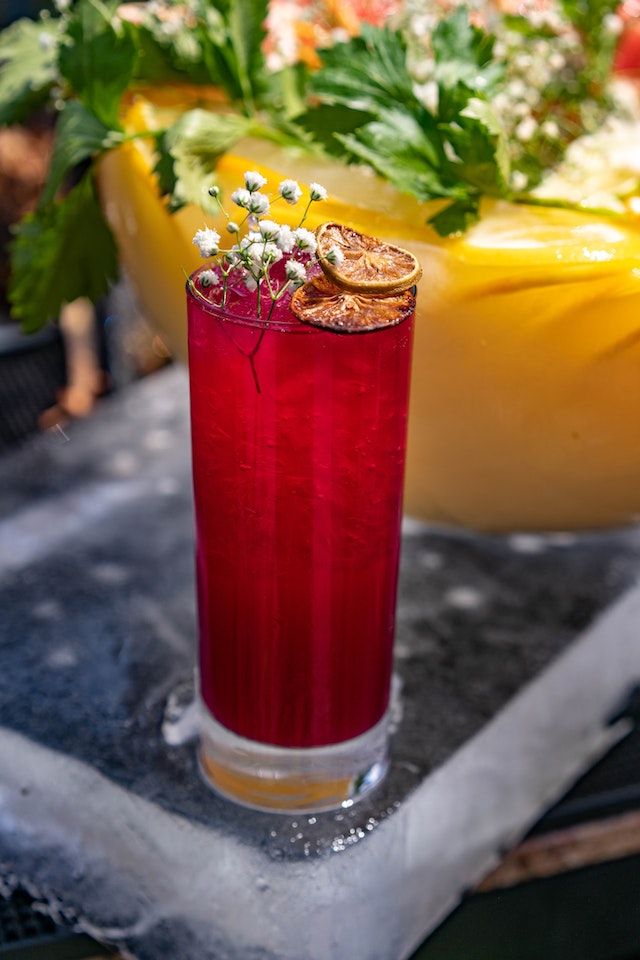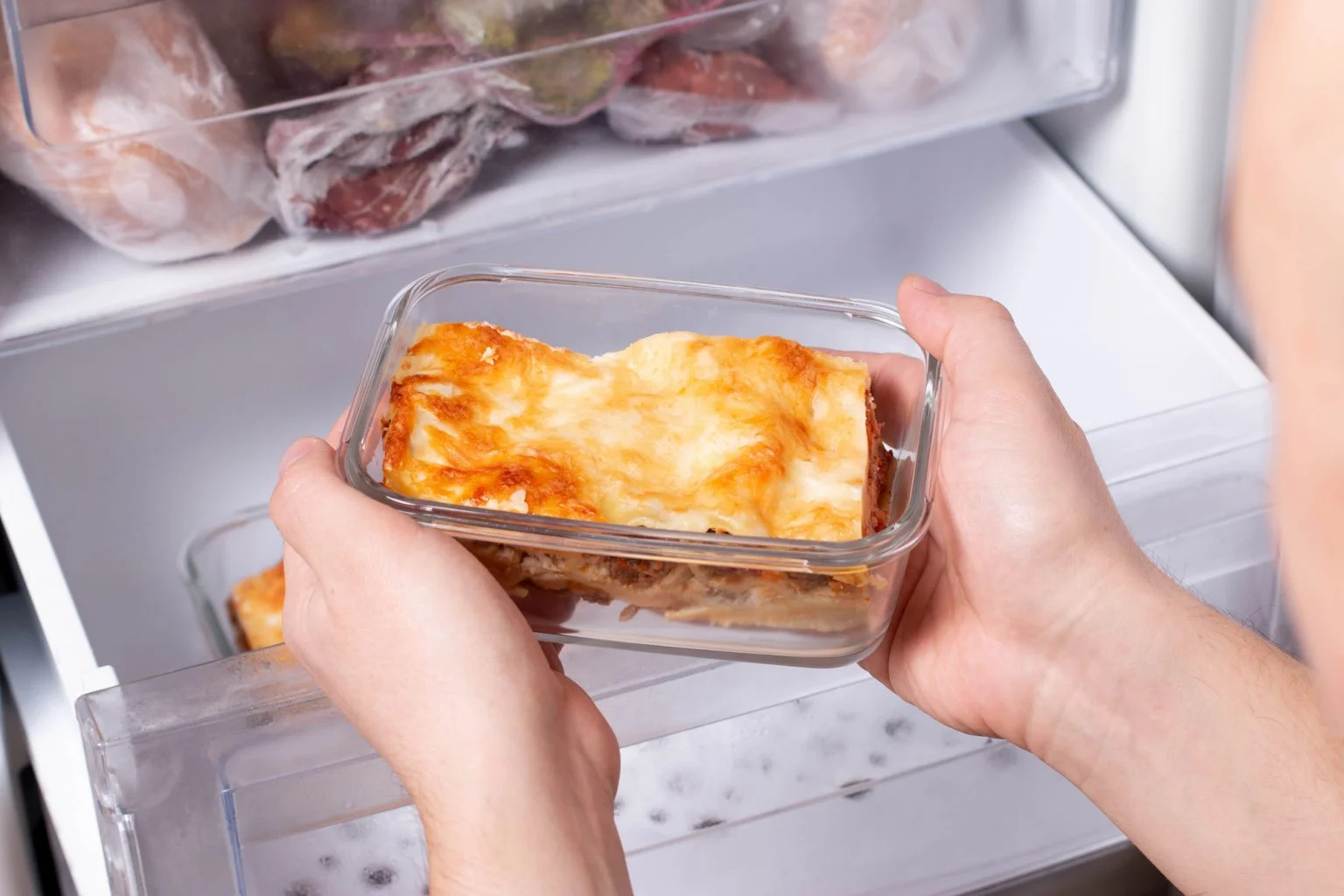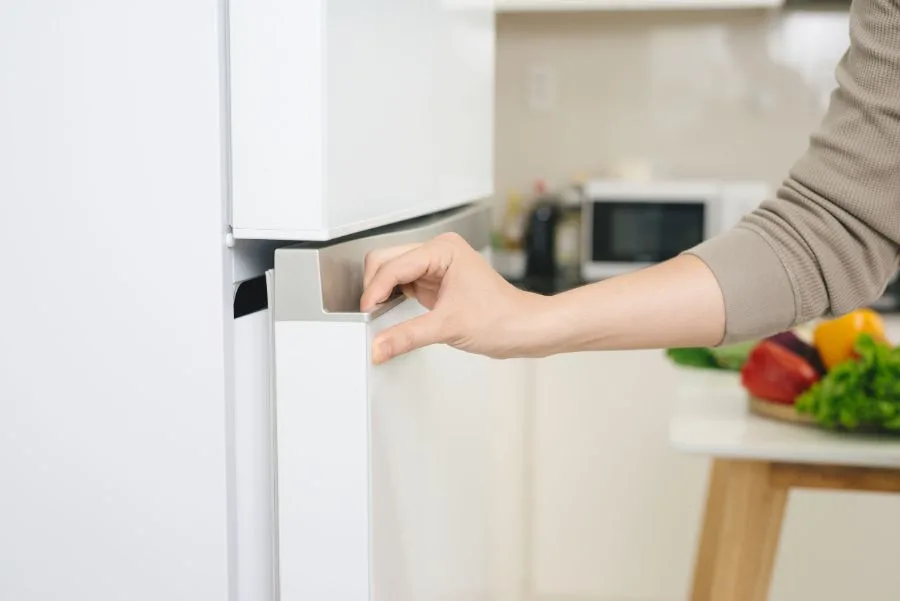Placing glass in the freezer seems like a no-brainer for keeping leftovers or meal prep. Is freezing glass jars and containers genuinely safe? Or will your glass shatter into small shards the moment you place it in sub-zero temperatures? Let’s get down to business and determine once and for all if you can put glass in the freezer.

Can You Put Glass Jars in the Freezer?
Short answer: Yes, glass jars can be safely frozen. Mason jars and other glass food containers are freezer safe. Just leave enough headspace at the top to allow your food or liquid to expand as it freezes.
Glass jars are great for freezing soups, stocks, sauces, and other liquid-based meals. Their strong construction avoids cracking and breaking. In addition, unlike plastic containers, glass does not retain stains or odors.
Mason jars are useful for freezing prepared individual portions. There is no need to defrost large amounts of chili or stew; simply prepare a single serving. Add a label to each frozen glass container so you know what is inside.
Can You Put Glass Containers in the Freezer?
Yes, glass food containers are freezer-friendly. Pyrex and Anchor Hocking glass bakeware perform well in the freezer. Their thermal shock resilience prevents cracking when you move them from the freezer to the oven or microwave.
Durable glass pans are ideal for freezing casseroles, lasagnas, and foods that can be readily reheated later. Glass keeps food fresh and does not retain stains or odors.
One tip: do not freeze glass storage containers that are full to the brim. Allow enough space for your meal to expand as it freezes.
Freezing Glass Containers: How Long is Safe?
Glass containers can be safely stored in the freezer for 3–6 months. After that point, the food quality begins to decline. However, the glass may be frozen indefinitely without cracking.
Dairy items, such as shredded cheese and butter, only last 1–3 months before being freezer burnt. Raw proteins, such as chicken or beef, are safe for up to six months.
Cooked meals, such as soups, sauces, and baked items, can usually survive 3–6 months if properly wrapped and frozen. Always mark frozen glass containers with the contents and dates! Very long-term freezing may result in stress lines or fracturing due to repetitive thermal contraction/expansion.

What Are the Advantages of Using Glass Containers to Store Food?
Why pick glass over plastic for your freezer? Here are some of the main benefits:
- Non-porous – Unlike plastic containers, food won’t absorb stains or smells.
- Microwave and oven safe – You can reheat frozen items directly in their glass containers.
- Eco-friendly – Glass is infinitely recyclable and more environmentally sustainable than single-use plastic.
- Airtight seal – Rigid glass lids provide a more secure seal than weak plastic lids. Better seal means less freezer burn.
- Withstand temperature changes – Thermal shock-resistant glass ensures a safe transfer from freezer to oven.
- Clear viewing – Without having to open lids or sift through opaque plastic tubs, you can immediately see what is within.
Potential Risks of Freezing Glass Containers
Freezing glass is low-risk, but there are a few measures to consider:
- Leave headspace at the top of containers; liquids expand as they freeze.
- Avoid excessive temperature fluctuations; do not go from freezer to hot oven or vice versa.
- Before using previously frozen glassware, check for hairline cracks, since microfractures can weaken the glass.
- Handwash the glass to avoid thermal shock from hot dishwater after freezing.
- Use glassware made expressly for baking/freezing; not all glass can endure extreme temperatures.
- Do not freeze glass bottles with narrow necks; trapped expanding liquid can break the glass.
What Foods Can You Freeze in Glass?
Pretty much anything! Here are some of the most common foods for glass container freezing:
- Soups, stocks & sauces
- Chili, stews & curries
- Pasta bakes like lasagna, ziti or mac n’ cheese
- Casseroles and baked pastas
- Meatloaf, burgers, meatballs
- Chicken or seafood dishes
- Leftover rice, grains or roasted veggies
- Fresh fruits like berries or chopped mango
- Herbs suspended in olive oil
- Shredded cheese
- Nut butters
- Baked goods like cookies, muffins or bread
What’s the Best Way to Freeze Food in Glass Containers?
Follow these easy steps for perfect frozen glass storage:
- Allow 1-2 inches of room for expansion.
- Tightly seal lids with freezer-safe plastic lids, wax paper, or plastic wrap.
- To provide an extra tight seal, double wrap bakeware in heavy-duty aluminum foil.
- Label the contents, amount, and freeze date clearly on the lid.
- Before freezing, flatten food into thin layers to allow for easier thawing afterward.
- Place in the coldest portion of the freezer, such as the bottom shelf or rear corner.
How Do You Defrost Food in Glass Containers?
To safely thaw frozen glass containers, use the following methods:
- Fridge thawing – Place sealed frozen glassware in the refrigerator 1 day before use.
- Cold water bath: Submerge sealed frozen glass jars or containers in cold tap water, changing the water every 30 minutes. Avoid running hot water over glass or microwaves because abrupt temperature changes might cause fracture.
- Microwave: Thaw partially in the microwave. Only use microwave-safe glass.
- Oven: Bake frozen casseroles, lasagnas, or bakes in their glass bakeware, covered with foil, at 350°F until thawed.
After thawing, carefully check the glass for cracks or damage before warming or serving. When in doubt, defrost slowly in the refrigerator overnight!

Conclusion
So go ahead – embrace the glass life! With care, glass is a versatile freezing companion. Following container type, fill level, storage, and thawing requirements ensures maximum safety and food quality preservation in the freezer.
FAQs
So if you’re freezing broth, soup or stew, make sure to leave some room at the top of your container for this expansion. Otherwise, there’s a risk that the glass will crack. As long as you do, you can put glass in the freezer filled with all your favorite cold-weather delights.
Particular types of glass jars and containers are safe to put in the freezer. But not all glass containers are freezer safe. When purchasing glass containers try to choose tempered glass or freezer-safe. This will ensure that your container will remain in one piece when you want to chill your food or drink.
The heavy nature of glass containers also means that they are better suited for storing leftovers or prepared food in your refrigerator or freezer than for using as a travel container.
Anything liquid in a sealed glass container or can could explode. It’s no secret that liquids expand and contrast when placed in the freezer. For this reason, Murphy recommends avoiding placing glass containers full of liquids in the freezer. The same logic applies to cans and even plastic storage containers.
But when it comes to storing food in the refrigerator, many people wonder if glass containers are safe to use. The answer is yes, glass containers are safe for storing food in the refrigerator, as long as they are made of high-quality glass that can withstand low temperatures.
Sources:
- Can You Actually Put Glass in the Freezer?
- Can you put glass in the freezer?
- Freezing Food in Glass – Why We Love It, What You Can Freeze, & Tips
- Can You Put Glass in the Freezer?
- The Reason You Shouldn’t Freeze Your Food In Glass Jars
- How to Prevent Glass from Breaking in the Freezer
- How to Freeze (and Thaw) Food—Plus How to Keep Your Freezer Organized
- Can You Use Glass Safely In The Freezer? And Other Burning Freezer Questions
- Is It Safe To Put Glass Containers In The Freezer?
- How to freeze food in glass jars (+ defrost it safely)
- How to freeze food in glass … kitchen helper
- Can Pyrex Go In the Freezer?
- Can you freeze food in glass jars?
- How to use Glass Containers for Freezer Meal Prep
- How Long Can You Put A Glass Bottle In The Freezer
- Freezing Glass Jars? 5 Quick Tips to Avoid Broken Jars
- The Best Way to Safely Freeze Liquids in Mason Jars
- Can You Put Glass in the Freezer?
- Here’s Why You Shouldn’t Freeze Food In Glass Jars
- How to Freeze Food Without Using Plastic